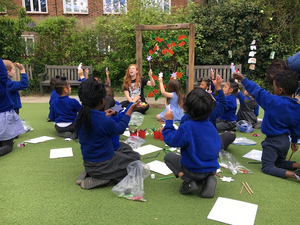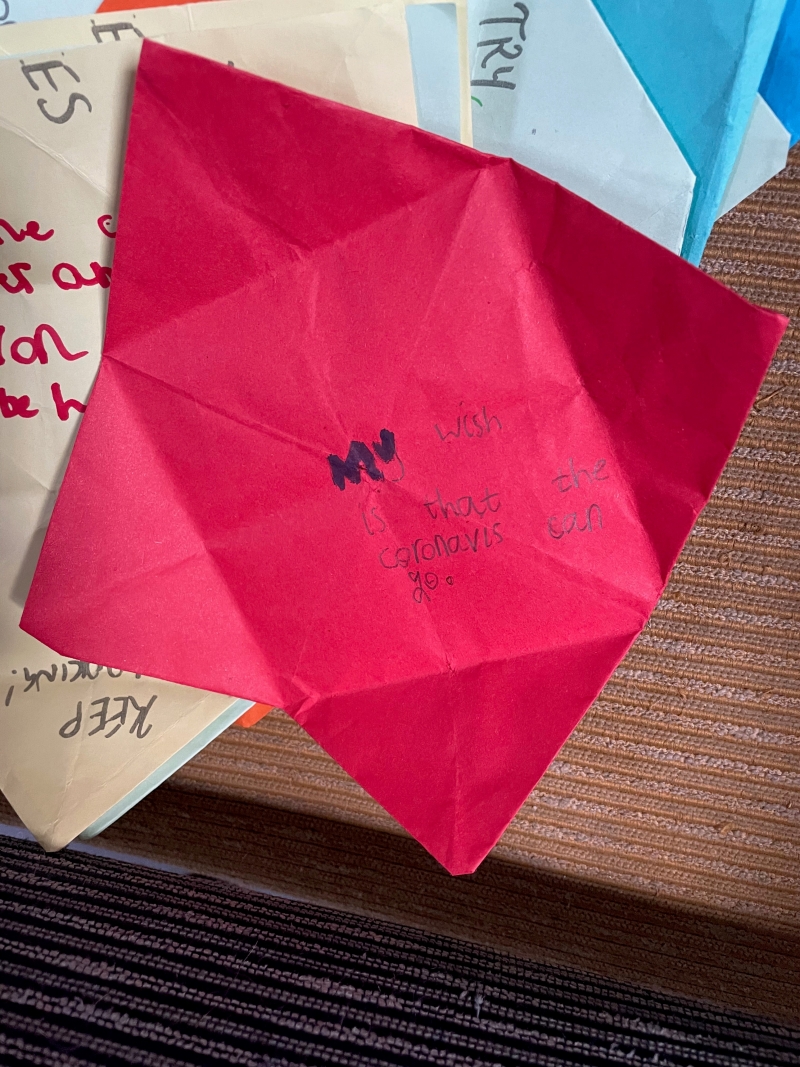Guest Blog: Writer Joseph Coelho On THE WISHING TREE
On working with young people to produce a play for Little Angel Theatre

It is not uncommon in children's theatre for a writer to be asked to create a play with input from a community group or school(s). It's something I have been asked to do on several occasions, often for plays that have an educational or project focus. It's always a pleasure to be asked to take part in such projects, but they do have their own unique challenges.
The writing of the play becomes a waiting game: you can't speed ahead with an idea because you need to allow space for the ideas of the young people to be received and to blossom. At times this can be frustrating, as numerous wonderful ideas start to present themselves that need to be gently placed aside as you wait for the results of a workshop or questionnaire. However, fear of any frustrations was soon allayed when the young people's responses from Little Angel Theatre's (LAT) workshop sessions came flooding in.
When Little Angel Theatre approached me to write The Wishing Tree it was a literal dream come true. I have long wanted to write a play for this most iconic of children's theatres and having many moons ago spent several years volunteering for the theatre's Saturday Club, I was well aware of the impact puppetry can have on helping young people navigate not only narrative but also difficult subject areas.
The starting point for The Wishing Tree was a series of workshops carried out by LAT creative practitioners inviting young people in schools and community groups to share their lockdown experiences: their fears, their hopes and their dreams. The generated material was then ferried to me to help inspire the text.
 I was ready for the expected fears of getting ill and hopes for things to return to normal. What I didn't expect was how mature and recognisable (to an adult mind) the young people's responses would be. They feared grandparents dying, young people from split families hoped to see their absent parent again, some worried about climate change, some worried that they would be lonely. It meant I could write the play I wanted - a play that touches upon big subjects and themes, and is able to delve into the emotional landscape that we have all been thrust into this past year and a half.
I was ready for the expected fears of getting ill and hopes for things to return to normal. What I didn't expect was how mature and recognisable (to an adult mind) the young people's responses would be. They feared grandparents dying, young people from split families hoped to see their absent parent again, some worried about climate change, some worried that they would be lonely. It meant I could write the play I wanted - a play that touches upon big subjects and themes, and is able to delve into the emotional landscape that we have all been thrust into this past year and a half.
I started to populate the world of the wishing tree with characters - working on the principle that it's always easier to cut then to add. I wrote the all-singing, all-dancing version of the play, centring on the protagonist, Ben, his mum, stepdad and biological father. Ben had recently moved to a new estate away from his biological dad and his friends, and it's on this estate that he discovers a special tree and its accompanying sprite.
Of course, the piece had far too many characters for a two-actor piece where the actors would also have to manipulate a menagerie of puppets. I began cutting, reducing the main characters but to my delight being able to slightly increase the puppet contingent (I've never grinned so hard as I did on the day LAT told me I could have seven puppets... SEVEN!!!).
Those puppets became the sprites of other trees, sprites that start to reflect the emotional landscape that was apparent in the responses we had received from the young participants of the project. There's a parrot obsessed with being present in the here and now, a conker sprite that just wants to play, the lead puppet - the Green Child - who is feeling lost, and a sinister beetle-grub obsessed with all the material: with all the things we can see, the bad news, the headlines, the elements that rob us of hope.
The young people's responses had given me license to delve deep and underlined a long-held belief that far from only wanting the frivolous and the funny, young people yearn to have stories that safely explore the dark, the dangerous, the upsetting and the emotional.
The Wishing Tree runs at Little Angel from 9-26 September. For tickets visit www.littleangeltheatre.com
Comments
Videos

